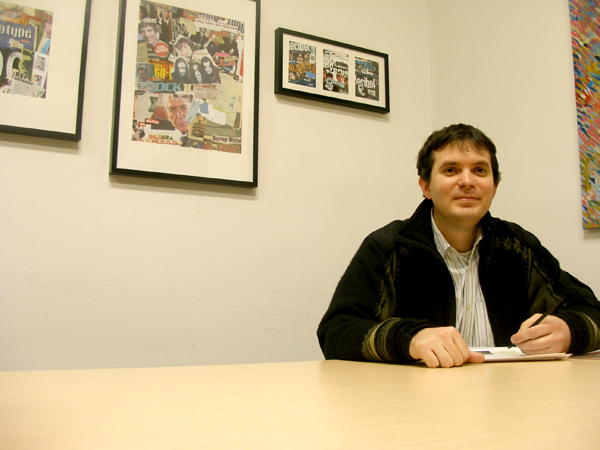 You have to admire postgreen’s 100K House—and the folks who conceived, designed and executed it—but if you’re looking for a “green epiphany” story, you won’t find it here. Nic Darling and Chad Ludeman weren’t looking to save the world. They decided to build affordable and efficient infill housing for urban areas because it makes good sense.
You have to admire postgreen’s 100K House—and the folks who conceived, designed and executed it—but if you’re looking for a “green epiphany” story, you won’t find it here. Nic Darling and Chad Ludeman weren’t looking to save the world. They decided to build affordable and efficient infill housing for urban areas because it makes good sense.
At the 2010 Pennsylvania Association for Sustainable Agriculture (PASA) Conference, keynote speaker Michael Reynolds talked about how meaningless the terms “green” and “sustainable” have become. “‘Is it logical?’ is what I ask now,” he said. For over 30 years, he’s been designing homes made from garbage, often using discarded vodka bottles or car tires filled with dirt for insulation. You can read more about him and his homes at earthship.org.
And, at a recent Urban Sustainability Forum, Patrick MacDonald from the award winning Onion Flats architecture firm echoed that sentiment when discussing water management systems. Why should rainwater flood our sewage system and create health risks when, with proper management and good design, it can be harvested and used? Turning an asset into a liability just isn’t logical.
When we do let logic and pragmatism guide us, we’re free to ask the bigger questions about the systems in which we participate, and our society in general. Are we producing high quality food? Are we protecting the ecosystem for future generations? How healthy are we? Are we caring for our children as well as we can? How are our neighbors doing? Are we happy?
In a recent column, New York Times columnist David Brooks wrote, “Modern societies have developed vast institutions oriented around the things that are easy to count, not around the things that matter most. They have an affinity for material concerns and a primordial fear of moral and social ones.”
This month’s media section mirrors those concerns. We review Annie Leonard’s Story of Stuff, a book that removes the veil from the realities of production, and the movie No Impact Man, an intimate look at Colin Beavan and his family’s year off the grid. Both works demonstrate that questioning our relationship to stuff is not only possible, but also quite liberating.
It’s time we start thinking about the true costs of what we do as a society, and the alternatives we can imagine. Following the bottom line has led us to where we are now, and continuing to chase it simply isn’t logical.
Alex Mulcahy
Publisher
alex@gridphilly.com

